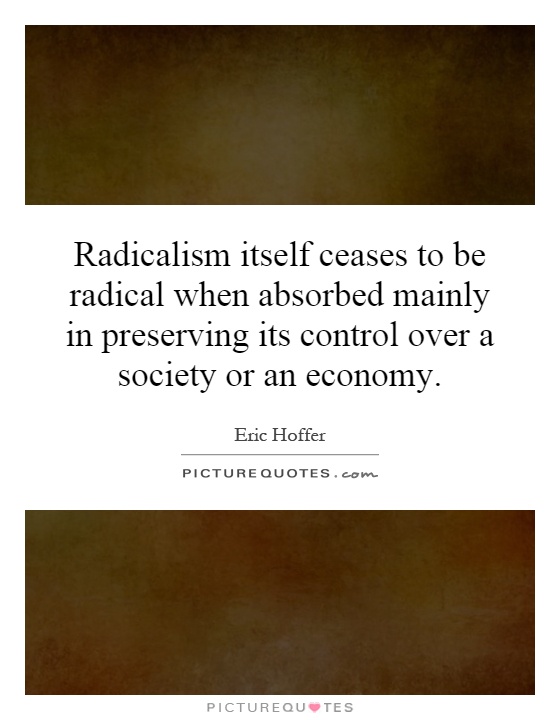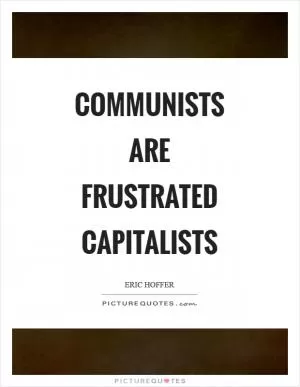Radicalism itself ceases to be radical when absorbed mainly in preserving its control over a society or an economy

Radicalism itself ceases to be radical when absorbed mainly in preserving its control over a society or an economy
Eric Hoffer, a renowned American philosopher and author, once stated that "Radicalism itself ceases to be radical when absorbed mainly in preserving its control over a society or an economy." This profound statement sheds light on the paradoxical nature of radical movements that often start with noble intentions but end up becoming part of the very system they sought to change.Radicalism, by definition, refers to the advocacy of revolutionary or extreme social or political reforms. It is often associated with challenging the status quo and pushing for significant changes in society. However, as Hoffer points out, radical movements can lose their radical edge when they become entrenched in power and start focusing on maintaining their control over society or the economy.
This phenomenon can be seen throughout history, where radical movements that once fought against oppression and injustice eventually became the oppressors themselves. The French Revolution, for example, started as a radical movement to overthrow the monarchy and establish a more equitable society. However, as the revolution progressed, the leaders became increasingly authoritarian and repressive, leading to the Reign of Terror.
In more recent times, we can see how radical political parties or movements that started with progressive ideals have become corrupted by power and lost sight of their original goals. This can be seen in the rise of authoritarian regimes in countries that were once at the forefront of radical change, such as Russia and Venezuela.
Hoffer's statement serves as a cautionary tale for those involved in radical movements. It reminds us that the true essence of radicalism lies in challenging power structures and advocating for meaningful change, rather than simply seeking to maintain control. It is a reminder that radical movements must constantly question their own motives and actions to ensure that they do not become the very thing they set out to oppose.












 Friendship Quotes
Friendship Quotes Love Quotes
Love Quotes Life Quotes
Life Quotes Funny Quotes
Funny Quotes Motivational Quotes
Motivational Quotes Inspirational Quotes
Inspirational Quotes